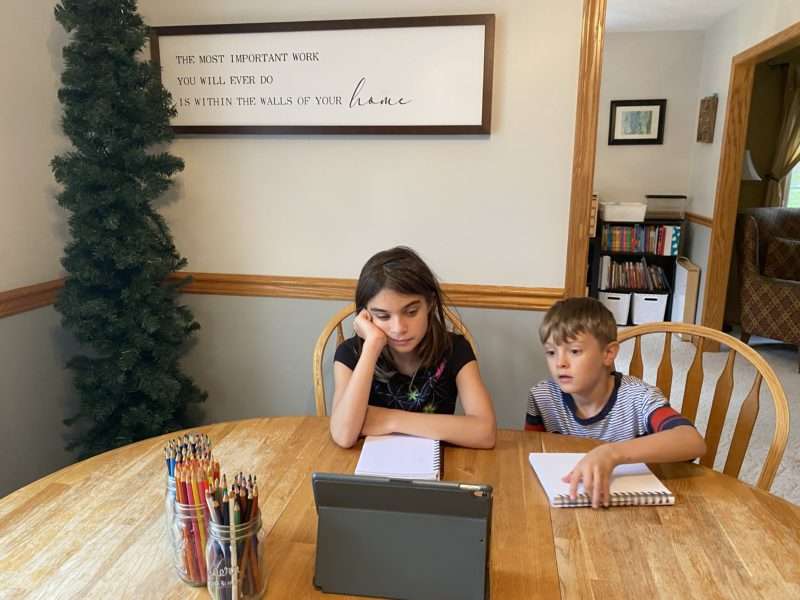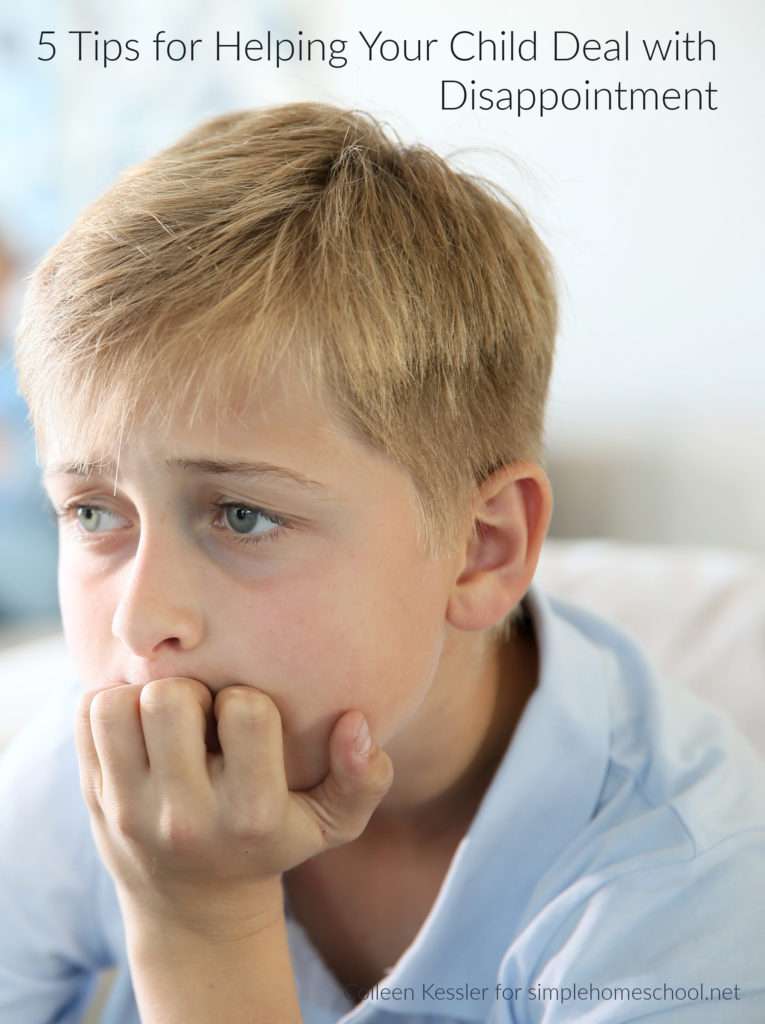5 Tips for Helping Your Child Deal with Disappointment
5 Tips for Helping Your Child Deal with Disappointment ~
Written by Colleen Kessler of Raising Lifelong Learners
“I thought that the new year would be better than this one was, but it’s all just the same thing…”
My heart has been broken again and again this year as I look into the big brown eyes of each of my kiddos in turn. Telling them that, yet again, the theater class I had signed up for wasn’t able to run as there just aren’t enough kids wanting to add another Zoom class, and they’re not sure the county will allow them to meet in person to hold it on campus.
Or that, no, he still can’t see his best buddy because he lives with his ailing grandmother, so they’re not seeing outside families.
It’s been a tough time on our kiddos.
Everyone faces disappointments in life, both big and small. How we deal with those disappointments — and teach our kids to deal with them — shows our character and emotional intelligence.
It’s important to acknowledge disappointments and not just ignore them, but how do we show our kids how do it effectively without whining and becoming downcast and depressed? The answer lies in learning constructive ways to acknowledge disappointments.
Disappointment can build character and patience if we allow it to. Teaching our children to deal with their disappointments constructively can make them stronger, more well-adjusted people.
Coping with Disappointment
The first thing to do when it comes to helping your child deal with disappointment is to recognize the coping strategies they have. Everybody has some — they just may not be productive ones.
Do they reach for a snack or withdraw into a room all alone? Do they pick on their siblings or try to forget what’s going on?
Once you help them recognize that their old strategies aren’t working; it’s time to help create new ones.
Here are 5 tips for helping your child deal with disappointment:
1. Encourage them to acknowledge what they’re feeling.
They can honestly express the emotions they’re feeling without blaming or punishing others. Teach them that this is about how they feel about the situation, not about how others affect it. Encourage them to articulate their feelings without attacking the situation or a sibling or friend. Remind them that sometimes things are out of our control and they will get through it.
Teach them to be respectful, but not afraid to let you know how they feel.
Remember, there isn’t a right or wrong way to feel. All feelings are valid and if they learn to avoid voicing their opinions and emotions they’ll harbor resentment and stress themselves out. Teach them to be honest with themselves about how they really feel about the situation.
2. Help them put disappointment into perspective.
Even small disappointments can seem monumental at first. But once they’ve expressed their hurt, frustration, or anger, encourage your children to take a step back and look at the bigger picture.
How much of an effect is this disappointment going to have on them tomorrow, next week, or next year?
What can they do to be proactive? My daughter, for example, can stage a show with her siblings to stream to family members or try an online class from a new instructor. My son can make plans to FaceTime his buddy to see him while respecting his friend’s family and their needs.
One idea is to model taking a deep breath and going for a walk to help them put their disappointment into perspective. Taking time to reflect and step away from the situation will help calm their nerves so they’ll be better able to handle whatever they’re disappointed about.
3. Teach them not to doubt themselves.
Sometimes disappointment can make a child (or adult!) feel like a failure. They may wonder why these things happen to them or they may think they were stupid to get their hopes up in the first place.
But none of that is the truth. Don’t allow them (or yourself!) to give in to these negative thoughts! Talk to them about “tricky thoughts.”
When we’re stressed, frustrated, down, or depressed, our mind can get “tricky” and tell us things that aren’t true, making us feel way worse than we did before. They need to protect themselves from giving into those thoughts.
Disappointment is not unique to them — tell them they’re not alone. Better yet, share a time when things didn’t go YOUR way. Everyone has been disappointed at some time in their life. Instead of getting down on themselves, encourage them to think about what could have been done differently and to learn from the experience.
4. Help them look for a solution or compromise.
They can’t have their way all the time but sometimes there may be a second option that’s agreeable to each party. My daughter was lamenting the other day about her closest friends all living in different states — one of the upsides AND downsides to traveling with me when I go to speak is that my kids meet other kids — true kindred spirits — out on the road like I do.
Since she was feeling down, and it’s not possible to travel to see them right now, we came up with the idea to do a twice-monthly “meetup” on Zoom.
They’ll get together tomorrow afternoon since I don’t have any work requirements that I need bandwidth for, and they’ll snack and chill with their out-of-state friends for as long as they want to. It’s not the same as seeing them in person, but it’s the next best thing.
Encourage them to take a few deep breaths, relax, and look for the “silver lining.” It really is possible to find something positive in almost every situation.
5. Teach them to take stock, reevaluate, and make changes if necessary.
Sometimes when someone experiences disappointment, it may be a sign that they need to re-examine their priorities. This goes for our kids, too.
Depending on the degree of disappointment they’re facing, they may need to make some changes to their lives. For my theater kid, it’s that she has to embrace this current new way of auditions and performances.
You don’t get the same energy, it’s true, through a live-streamed show as you do when you’re in a sold-out theater, but if musical theater is important to her, she needs to adjust for now. If it’s not that important, she needs to be honest with herself and step back for ahwile.
There’s no right or wrong when it comes to feelings and emotions. There’s only communication, validation, and moving forward.
Don’t Let Disappointment Win
Every person who has had even a small degree of success in life has faced disappointments. Winners simply don’t quit. They learn from their failures and disappointments and go on to achieve their goals.
I watched a movie recently that had a line repeated throughout that I loved. “Problems are opportunities to find new adventures,” the main character kept saying. What a wonderful testimony to building resilience in our children.
And that’s what dealing with disappointment is — the ability to get up, dust oneself off, and bounce back from something that didn’t go in the way it was imagined.
Your child can become their own biggest motivator! Remind them not to underestimate the power of encouraging themselves by saying, “I can do this. I can make it. I will get through this and become a better person!”
Your kiddos don’t need to allow disappointment to lower their self-confidence, resilience, and emotional intelligence. With these five tips for helping your child deal with disappointment effectively, you can gently guide them through the process of moving on to bigger and better things.
If you’d like to read more about raising resilient and confident children, please check out my brand-new book, Raising Resilient Sons: A Boy Mom’s Guide to Building a Strong, Confident, and Emotionally Intelligent Family. (afflink) You can grab a copy anywhere books are sold.
What’s Your Homeschool Mom Personality? Take Jamie’s quiz now and receive a free personality report to help you organize your homeschool based on what your personality type needs most!




